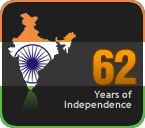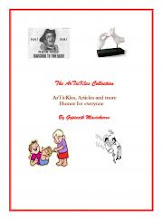Gopinath Mavinkurve
Towards the end of each year, it
has become a popular practice that is been put in place in recent times that western
lexicographers and ‘language watch’ organizations like the Oxford University
Press (OUP), Merriam Webster Dictionary, Global Language Monitor and the
American Dialect Society, do announce their chosen “Word Of The Year” (WOTY).
As a keen observer of language
trends, one has been keeping an eye on the announcements in the last decade or
so. While some of the WOTYs announced by the have taken me by surprise,
some others have been just what one expected would make it to the winning
post. The process of choosing the
coveted word from among contenders for the honour appears to be methodic and
even participatory democratic.
Contenders vying to be the WOTYs are also put up by some language
societies on their websites for a few weeks inviting the public at large to
vote for their choice for the top slot, while some relying on language experts
on their staff rolls to select the winner.
For example, the WOTY 2013announced by Oxford Dictionaries is “Selfie”,a term for clicking a picture of oneself or oneself with someone you met, acommon practice due to the front-and-rear cameras provided in modernsmartphones. More about the method of choosing the word in this link here. The runners-up can be found in this link here. Oxford had announced “Omnishambles” asthe WOTY 2012, a state of shambles all over, reflective of the financial andpolitical scene, from which the globe struggles to recover even to this day!
Merriam Webster has declared “science”
as their choice for the WOTY 2013. The
method employed has been the words that users of their online dictionary looked
up on their website. More about it inthe link here.
Global Language Monitor has
announced “404” as the WOTY 2013 and “Toxic Politics” as the Phrase of the Year
2013. Details in this link.
The
American Dialect Society has yet to chose their WOTY 2013. It had chosen “hashtag” as their WOTY 2012. Hashtag is a ‘#’ placed before a word or
phrase on Twitter (and now FB too!) which sorts out tweets by clicking on the
hashtag.
From the above, it is obvious
that words that have made it are either newly coined ones to reflect the
changing times or at times, existing ones that have become popular again due to
current events. In any case, they have
caught the imagination of the public at large and have made it to the popular charts in their years of reckoning. Clearly one finds
that while the WOTYs announced do reflect the socio-economic realities of the
western world, they do not necessarily reflect the times and moods of people of
India.
It is with this fact in mind that
one wonders why cannot we have our own Indian Language watch organization that
puts up some contenders for the Indian
Word Of The Year (IWOTY) for us to select from? So when I posed this question on my blog a few years ago, my friends and ardent blog
followers suggested me to do this each year until some reputed organization picks
up the idea on a larger national scale.
Some of the past potential IWOTYs that have featured in my
blog in the past few years:
Kolaveri – Outrage in our contemporary word that featured in the “Kolaveri
Di” a song by Dhanush that became viral in 2012. Besides the ‘heart-breaking’ rage from his
prospective life partner, that earned it the popularity it deserved, the apparent outrage on social media circuits
about the state of national affairs.
Anna / Annagiri – Team Anna’s high-pitch campaign for a Lok Pal Bill seeking trial of corruption at
top level and several other measures found news channels beaming the
fast-unto-death threats as a tool of modern satyagraha being termed as “Annagiri”. Although not everyone agreed that a Lok Pal
Bill would be a panacea for all our political ills, it gained support merely
due to the widespread misuse of the power vested in our political leaders and
one agreed that they ought to be independently investigated without political
interference of their bosses.
Lok Pal
– “Lok Pal” had became a popular term earning a mention in various published
articles consequent to the campaigns of Team Anna.
Scamayana – Scams in India had grown to epic proportions, which
prompted Indians to expect the chronicling of the current scams which could be
called “Scamayana” for future generations to refer to and take note of. An era that
would better be done with and dusted, though.
Below are some of the contenders
that could don the “IWOTY 2013” cap this year.
Readers may suggest more worthy contenders for IWOTY to my email id g_mavinkurve@hotmail.com
Modi-fication – The anointment of Modi as the PM candidate for the
BJP has brought prospects of the Modi-fication of the Nation – a term used to
imply that the progress of Gujarat model and the ideas of an Industry-friendly
Chief Minister could well be spread across the nation with this development. Although this is an existing word suggesting
change, what makes it a pun is the prospective PM candidates name itself! The nation awaits the results of this
announcement with bated breath, but change seems to be what most Indians want
and some kind of change is inevitable!
Aam Aadmi – The word, Hindi for common man, is back in the fray
with renewed vigour ever since the Aam Aadmi Party clinched a sizeable number
of seats in the Delhi State elections, albeit falling short of being called a ”clean-sweep
of the new broom”. The common man himself
is back in the reckoning. The power of the mainstream media, the impact of the
social media platforms like Twitter and Facebook, the manner in which the
common man’s opinion is becoming increasingly important is apparent. The word is gaining prominence for all these
factors as it is for this fledgling political party which has just tasted its
first success.
Laal Batti – The Red Beacon on cars signifying that the persons
travelling are “privileged” persons bestowed with special privileges at public
places. It is becoming a common feature
to find reports in the news media about the kith and kin of the “High-and-Mighty”
to claim special treatment at Toll Nakas, Customs clearance gates and such
other public amenities. Besides being misused by others who are not
even remotely related to the public servants, who are currently eligible for
this treatment, it is now in question whether such preferential and discriminatory
treatment should be even be made to those in power? Lal Batti is not just about
the Red Beacon on the car, more about all special privileges. Arvind Kejriwal
has refused Z-Category Security, A bungalow in New Delhi and of course any other privilege that could
be called a “Laal-Batti” treatment and shown exemplary leadership. But will
other Mantris follow his example? Giving
up the Laal-Batti status is not such an easy thing to do, apparently!
Siballed – Social Media
users found themselves in a tight spot while commenting or ‘liking’ posts that
usually showed the ruling party or those at the helm in bad light. Although freedom of speech has been largely
enjoyed by Indians in mainstream and other media, there was a move by Kapil
Sibal to amend Section 66A of the Information Technology Act to punish anyone
posting anything “offensive” on the internet or social media sites like Twitter
or FB and removing “offensive content”
forthwith! Users who found some of their
posts struck down or hauled up by the police were said to have been “Siballed”.
Mango Man – This comical translation of the ‘Aam Aadmi’ is a
contender by itself. The term is widely in use in social media circles, playing
upon “Aam” being a Hindi pun meaning both common and mango! This term also receives favour by Yours Truly, due to the Mango-connection that my surname bears:
Mavinkurve
means “Mango Basket” in Kannada, apparently.
That makes me the “Original Mango
Man”, doesn’t it?




















